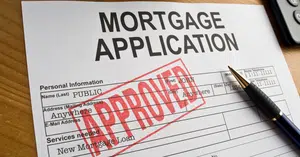How to prepare your finances when applying for a mortgage
Thinking about Mortgage Preparation? If you’re hoping to buy a house, then you’re no doubt well aware that you need to be saving up for a deposit. But there are other important steps you can take to prepare your finances when applying for a mortgage. We’ve laid out the key actions that can make the difference in getting approval from a lender.
Tidy up your debt
First, check your credit score. Is it correct? Is it a good score? We cover what you need to know about credit scores, including how to check your own and what to do if you need to improve your score in our blog: Everything you need to know about credit scores.
Next, look at your credit facilities. Do you really need any credit cards you have? And if you do, are the limits higher than you need? Same question for any overdraft facilities you have? The bank won’t look at whether you use your credit facilities, when calculating your income they’ll assume you’re maxing out your lines of credit.
For more information on getting a mortgage with debt, check out our blog: Can I still get a mortgage if I have debt?

Budget as if you’re already paying a mortgage
These days, lenders often want to see that an applicant’s current spending habits would support a mortgage. It’s standard to provide your previous three month’s bank statements as part of the application process.
To budget for a mortgage, talk with us to find out what you can borrow on your income. We can also tell you if you’d qualify for a loan at 10% or less, this will inform what your minimum deposit will need to be.
Then, you can use the Platinum Mortgages’ mortgage calculator to find out what your weekly repayments would be. Use an interest rate of 8% for example – Minus from that amount, your current weekly rent. The difference is then the minimum you should currently be saving each week.
For help budgeting, we recommend Sorted’s budget tool.
Once you have your deposit saved, we can sort a preapproval for you. A preapproval is a document provided by a lender that specifies how much they are willing to lend to you, and is generally valid for 3-6 months. With a preapproval you can start house hunting with assurance, but note that the lender will need to approve any property before you go unconditional.

Plan for the costs of buying and owning a home
Once you are in the process of getting preapproval, it’s a good time to ensure you have room in your budget to cover the costs of purchasing a home. These costs usually include:
- Lawyer fees. The process of managing the transaction of a property sale is called conveyancing and is usually done by a lawyer. A conveyancing lawyer will check all documentation for any risks or issues and will manage the transfer of payment from purchaser to buyer. Conveyancing fees do vary so ask friends for recommendations and shop around.
- LIM reports. LIMs, or Land Information Memorandums, are provided for a fee by the local council. The report lays out any known issues with the land, such as flooding or landslide risks.
- Builder’s Reports. A builder’s report is obtained by engaging a builder to inspect a property and report back to you on any issues found. This is especially useful when looking at older properties or buildings made of materials known to have issues. A builder’s report is often required by lenders before they will approve finance for a specific property.
- Movers and moving trucks.
- Cross over periods where rent is still being paid after settlement day. While ideally you would move into your new home on settlement day and finish your lease the day after, it doesn’t always happen that neatly.
- Advertising for flatmates if needed. You may not be able to get a renter straight away so allow for a period without rental income.
Looking long term, there are ongoing costs to owning a property that you don’t have as a renter. Common costs are:
- Home and contents insurance – make sure your insurance will cover cost of a full rebuild.
- Life and/or mortgage repayment insurance.
- Local council rates, water rates, regional council rates.
- Maintenance costs – budget for known maintenance needs, as well as a “rainy day” fund for when unexpected issues come up.
- Body corporate fees. If you buy an apartment, or a dwelling that includes shared spaces you will pay body corporate fees for maintenance and services relating of the buildings and spaces. Make sure you are clear on what fees are payable and when, and be aware that the fees can increase to cover increasing costs and levies be charged for larger maintenance items.

If the above information feels overwhelming, don’t panic! Just take it one step at a time. We’re here to help, so please get in touch when you’re ready to chat.